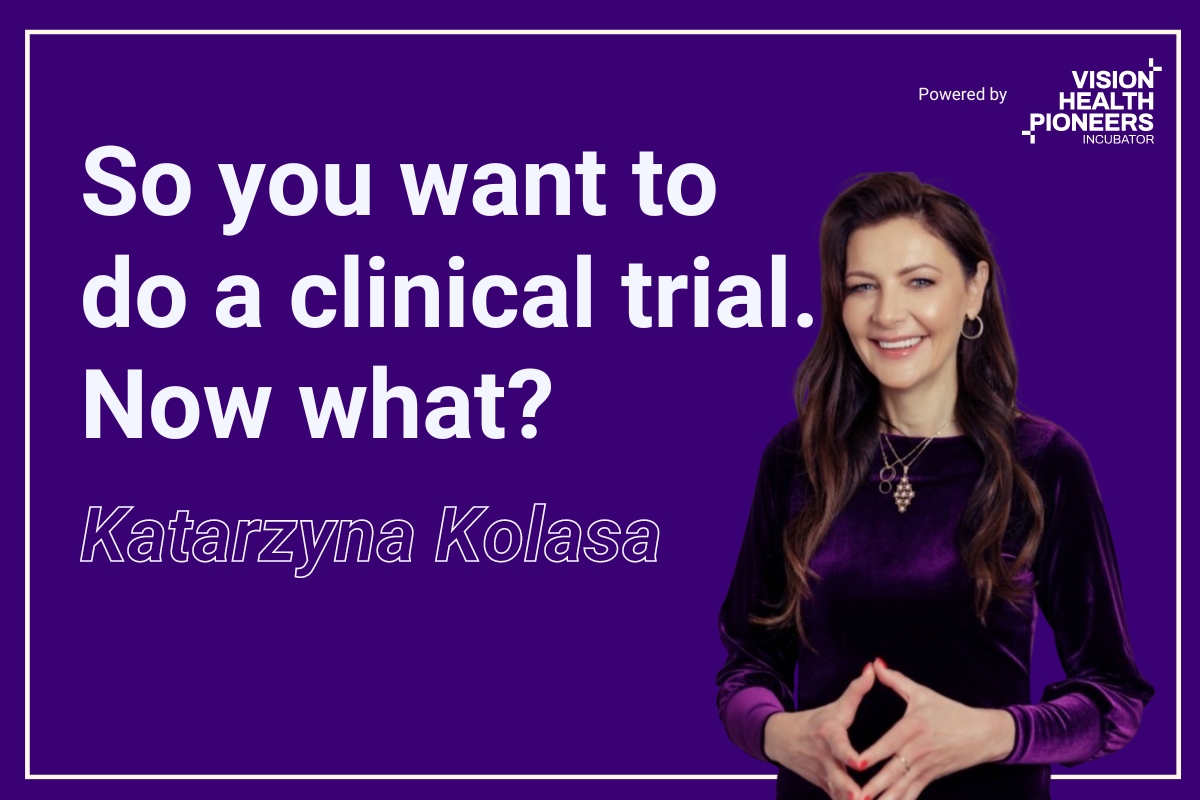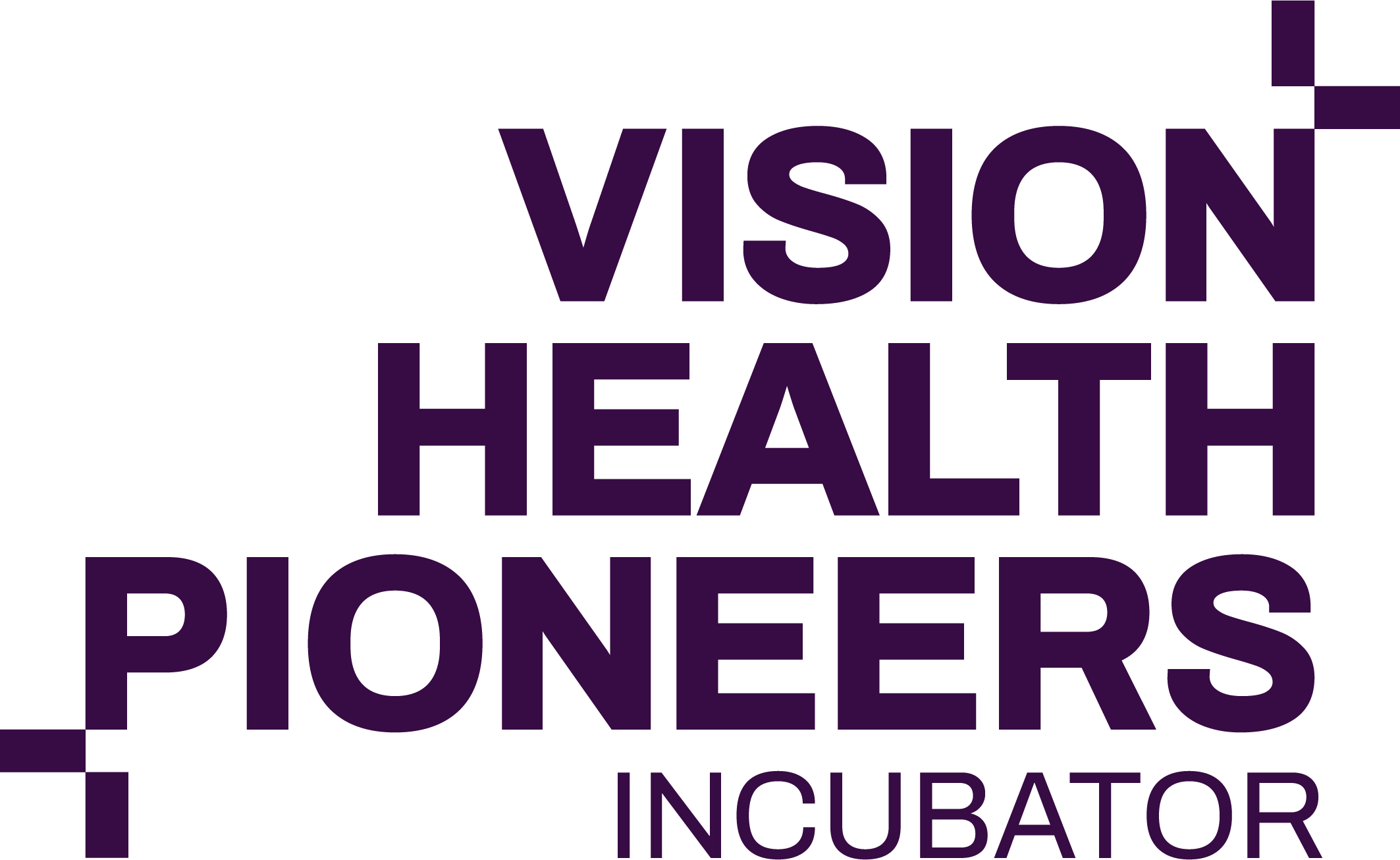
14 Feb So you want to do a clinical trial. Now what?
Entering the healthcare market starts with a sound value proposition, says Professor of Health Economics Katarzyna Kolasa
Vision Health Pioneers mentor and Professor of Health Economics Katarzyna Kolasa joined us this month to share her experience developing clinical trials and evidence-based studies. In this interview, we delve deeper into both and discuss what it means for early-stage digital health startups.
Niels: Hi, Katarzyna. Thanks for taking the time to answer my questions! When is it advised to consider starting a clinical trial?
Katarzyna: From day one: I believe that no health technology can be introduced to clinical practice without clinical and economic evidence. Clinical trials are essential for value proposition development, helping understand pricing, unmet medical needs, and providing robustness and credibility. There is no better way to gain confidence when pitching in front of venture funds than to understand your potential customers and your future payers.
All health technology – whether you are a pharmaceutical or medical device company, starts with evidence generation.
Niels. What are the best locations in Europe to set up clinical trials and why?
Katarzyna: When choosing the location to generate evidence, a few things are important, the first one being your financial resources. The quality of evidence generation is also important. Countries like Poland offer a lot for clinical trials, even for digital health solutions. For example, the Polish medical agency recently spent more than €120 million to establish digital health centers across hospitals. Central Eastern Europe, including Poland, could be a potential new platform for developing a quality and cost-effective market for clinical trials. Hungary is also becoming an emerging testbed for innovative healthcare solutions. As one article in the New York Times suggests, the country has a robust breast cancer screening program, making it one of the largest testing grounds for AI on real patients.
Another important consideration is to include clinical experts from the countries where you seek to launch the product. So, ideally, you would recruit both patients and clinical experts from the countries in which you want to operate.
Niels: What is one core consideration before pursuing clinical trials?
Katarzyna: The number one consideration is to organize small focus group studies involving patients, prescribers, and payers. This helps in understanding how to develop clinical trial programs based on stakeholder input. It’s crucial to discuss different market access entry points and tailor value claims through feedback sessions.
This will give you a complete understanding of your clinical pathway, the real medical needs, and how you will change the clinical pathway after introducing your technology.
On top of that, it’s important to understand that it doesn’t matter whether you’re a digital health startup or big pharma. It’s all the healthcare market and the rules of the game are the same, so you need to learn them. And the sooner you comprehend them, the faster you will become successful.
Niels: In our February newsletter, we focus on the theme of Addiction and Recovery. As you may know, our cohort team coobi is developing a technology that helps individuals with media addiction predict and redirect cravings. While they’re launching their MVP as a wellness product, they’re considering going down the clinical evaluation pathway to become a medical product. Do you have any experience supporting businesses addressing addiction and if so, could you describe your journey with them?
Katarzyna: Certainly. I worked with a pharmaceutical company launching a product for alcohol dependency in Central Eastern Europe, Russia, and the Nordics. My responsibility was to fix reimbursement. It quickly became clear that the challenge was not just reimbursement but addressing the stigmatization of patients with addiction. Stigmatization made it difficult to understand the disease and assess treatment effects. Focus groups helped define the problem and build a sensitive value proposition.
Niels: Interesting. How did you approach overcoming stigmatization in that project?
Katarzyna:We build the story from the understanding of the caregiver burden and the societal impact. We brought this problem to the surface without blaming those who are addicted. And it is a huge problem for anyone who has been suffering from addiction. Many times people who are addicted don’t know that they are addicted. So we needed to in a very sensitive manner, help them understand the problem.
Let me give you an anecdotal example from Finland. We managed to launch the product with reimbursement, yet nobody used it – even though it was completely free and possible to get over the counter in pharmacies. We later discovered that this product was, in fact, being used in huge amounts, but outside of the reimbursement system – people paid for it out of pocket. The reason for this was stigmatization. Users of the product didn’t want to get a prescription for fear of being labeled as alcohol addicted.
So you need to work first on building the market, then on building the value proposition, understanding that stigmatization is part of the disease – it’s not something separate. Don’t expect a miracle after reimbursement or completing a clinical trial. You need to have the value proposition first. Then you need to run the clinical trials that are adjusted to test this value proposition.
Niels: Lastly, you’ve had a chance to learn about and exchange with our teams. What are your observations?
Katarzyna: The teams are very enthusiastic and passionate, and they understand what they want to do! That said, they still have to deepen their understanding of how the healthcare system works and how they can really contribute to the change.
You need to start by really focusing on how the patient operates in the healthcare system today. Is the patient already within the healthcare system or still outside of it? What is the standard of care right now? And what is the plan B of patients – because in life there always is one. Once you understand the standard of care, you can build your value proposition accordingly. This assessment is crucial for success in the healthcare market.
Niels: Thank you for sharing your insights, Katarzyna. It’s been a valuable discussion.
Katarzyna Kolasa is a Professor of Health Economics and the Leader of the Digital Health Start Me Up course at Akademia Leona Koźmińskiego. You can find her on LinkedIn.



